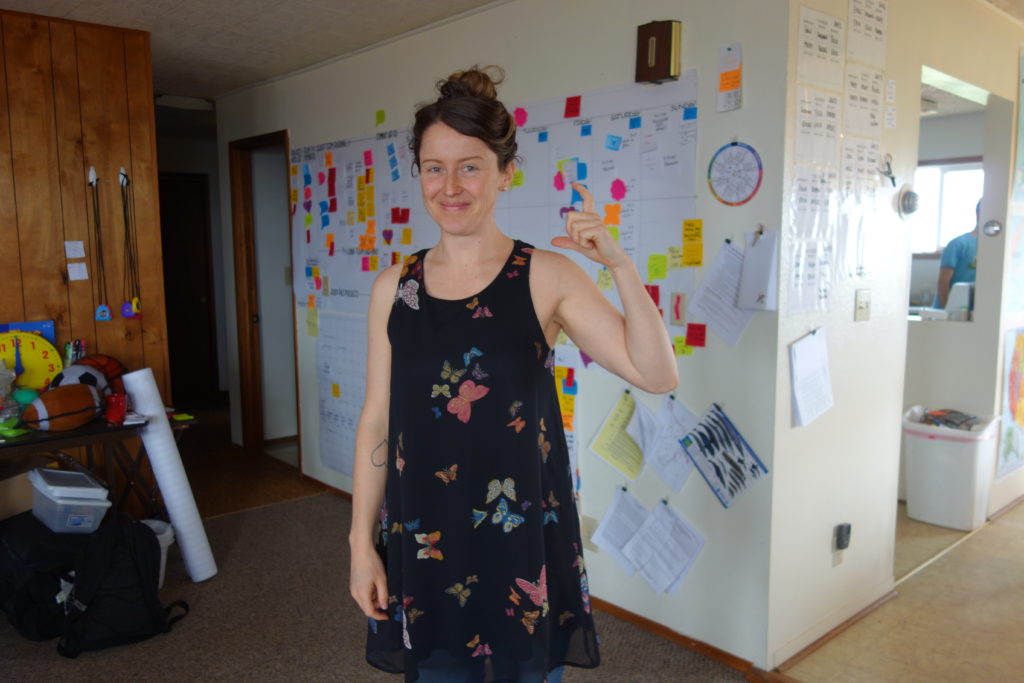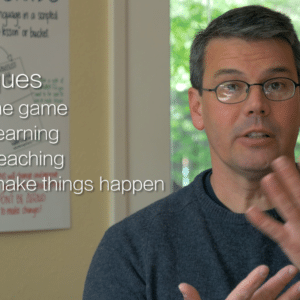
Learning a language is exciting, but it can also be scary. I get nervous when I stumble over new sounds, hoping no one nearby noticed. My cheeks feel hot every time I ask someone to pronounce a word so that I can understand and copy the sounds correctly. Suddenly it feels as if my ability to speak vanishes as my throat chokes up due to nerves. Pronouncing completely new words and phrases is a big task. However, we do not have to learn languages alone.
WAYK Technique: Angel on your Shoulder
This summer we have a team of approximately 20 people, so every time I get nervous speaking Unangum Tunuu, I throw Technique: Angel when a third person is nearby. We throw TQ: Angel to signal to the third person that we need support. The third person then stands in your line of sight, or right by your side and slowly sounds out or “lip syncs” (i.e., mouths) the words. Listening to or watching someone else mouth the words helps me gain confidence while I am trying to communicate.
Yes, language learning is scary but we do not have to do it alone. Actually, WAYK prefers that people do not attempt to learn a language alone. When our relationships with other speakers and learners are strong it is only natural that our fluency becomes stronger as well. TQ: Angel was primarily created so that two speakers could support building fluency, but I see several other benefits to TQ: Angel as well.
TQ: Angel helps us unlearn competitive learning techniques we may have learned throughout our lives. This technique also reduces a culture of scarcity. Due to the presence of colonial institutions such as boarding schools, the number of Indigenous fluent speakers has gone down. The huge amount of language work that needs to be done can make an individual feel overwhelmed and completely incompetent to do the job. TQ: Angel, however, reverses this culture of scarcity. Calling on another person for support is a reminder that we are not working alone, and calling on an Angel encourages us to rely on the skills that are available rather than focusing on the perceived barriers and lack of resources.

Post authored by Talia.




